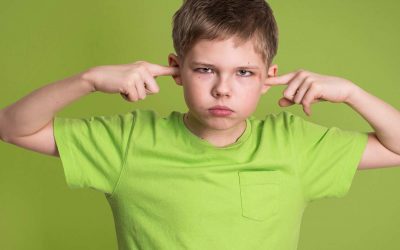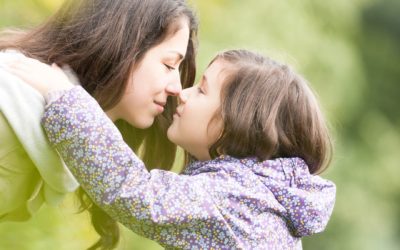Let’s talk about separation anxiety in kids
Separation anxiety disorder (SAD) is a type of mental disorder.
A child with separation anxiety disorder worries a lot about being apart from family members or other close people, because the person has developed an intense fear that if they are not in contact with their loved ones then something bad will happen to them.
The symptoms can be more severe than just normal separation anxiety and young children may cling and make it hard for them to flee the nest.
When your baby is still very young, it’s natural for them to be upset when you leave. But the reaction varies greatly depending on how much they’ve developed so far. Some babies will get hysterical as soon as their mother leaves and won’t stop crying until she returns while others seem not to notice that mom has left at all.
Separation anxiety disorder can cause a child distress in many different ways but there are times where some children don’t react or seem bothered by it at all- this depends largely upon what stage of development they’re currently going through
The Causes of Separation Anxiety Disorder
Separation anxiety disorder is a common condition in children that often starts at around 18 months of age. There are usually no physical symptoms of this disorder, it is mostly mental. Experts believe it’s caused by both biological and environmental factors, such as genetics, traumatic events or the environment they grew up in.
Once a child starts to find out the dangers of this world whether it be first or second hand, or even in a movie, it can trigger an anxiety disorder.
For instance; if your child watches a movie where his or her favorite character dies in a car accident then they might have excessive worry or ever panic attacks the next time they have to get into a car, because of what they saw in the film.
Some risk factors might be if a child inherited this tendency to be anxious from their parents who might have had separation anxiety disorder themselves when they were little (or didn’t grow out of it).
It can also happen if there are already imbalances with 2 chemicals within their brain – norepinephrine which governs arousal and alertness while serotonin does for mood regulation.
A stressful event could trigger an imbalance where these two forces behave erratically causing one over-anxious state after another until balance has been restored again through treatment like cognitive behavioral therapy sessions.
Adult Separation Anxiety Disorder
Adults with separation anxiety have an extreme fear that bad things will happen to important people in their lives, like family members.
This disorder can be seen by how adults cling on to loved-ones or refuse the idea of ever being away from parents for long periods of time; this is a sign they may not want them gone because it feels as if they are protecting them and themselves from any potential harm.
Research has yet been able to determine what causes these symptoms but there are many theories such as traumatic experiences during childhood which predict heightened sensitivity when faced with abandonment issues later on in life.
Attachment disorders stemming back again into early infancy where social needs weren’t met due to neglectful behavior leading up until now, genetics playing a role through generations.
My Five-Year-Old Has Separation Anxiety Disorder
Separation anxiety disorder is a condition usually diagnosed during infancy or early childhood. Symptoms may include: Recurrent and excessive distress about anticipating being away from home, separation with loved ones, return to school after summer break; recurrent nightmares of staying alone in new places; constant worry that something bad will happen while the child is not around to prevent it; reluctance to go anywhere without another person for fear they’ll get lost.
If your child’s separation anxiety continues to persist after the age of five and starts affecting his or her life, then your child may have separation anxiety disorder, which involves excessive fear when a loved one leaves them alone for periods of time they suffer from this debilitating mental disorder that affects millions worldwide each year.
They Feel Our Emotion
Children are very in tune with our emotions. As a result, many children feel more stressed these days despite not being anything that we have said to them or done to them. This is because they pick up on the way we’re acting and can tell when something isn’t right – such as having their shoulders by their ears which usually means someone’s tense and burdened.
Parents should be aware of childhood separation anxiety so as not to pass it down from generation-to-generation even if unintentionally.
Prevent Separation Anxiety Disorder
Exposure to nature is a great way of relaxing and connecting with your family. Spending time outside can improve moods, boost creativity, reduce stress-related illness, and strengthen social bonds.
If you haven’t been able to get out much because the weather has not cooperated or if there’s too many dangerous things in certain areas where you live (think drive by shootings), use these tips from The Huffington Post as ways for everyone to experience some fresh air.
Other Anxiety Disorders
5 Major Types of Anxiety Mental Disorders:
1.- Generalized Anxiety Disorder
– Persistent worrying or anxiety about a number of areas that are out of proportion to the impact of the events
2.- Obsessive Compulsive Disorder (OCD)
– Obsessive compulsive disorder is a mental health disorder that manifests as unwanted, intrusive thoughts and feelings.
3.- Panic Disorder
– A person with panic disorder experiences sudden terror that is not warranted by the situation.
4.-Post Traumatic Stress Disorder (PTSD)
– Post-traumatic stress disorder is a condition in which people have difficulty recovering after experiencing or witnessing a terrifying event.
5.-Social Phobia or Social Anxiety disorder
– Social anxiety is a chronic mental health condition that causes irrational fear in social interactions.
QUESTION:
Hello. I’m a mom of two and a half year old boy and a 16 month old girl. My five-year-old boy has developed separation anxiety this past year.
He saw all the time in virtual school and not going out often. Whenever anyone in the house goes out, especially myself. He gets upset, begs the person not to go and cries once distracted after the person leaves, he settles, but asks where they are frequently until we’re back home.
ANSWER:
What’s your experience been like? So we had a lot of children come in who have developed separation anxiety.
Now you are not alone, because the same has happened too many other kids. It really depends on how much it is affecting your child’s daily life if they can’t go through their day feeling stressed or anxious about being apart from you.
If this sounds familiar then don’t hesitate to reach out and speak with someone at our clinic for more information.
It is important for children to feel like they are in control and safe. In times of change, it can be scary when someone leaves the home or goes somewhere else without us knowing what could happen next. It’s best if we have a plan beforehand so that everyone feels comfortable with their own anxiety level and has some reassurance before going out on an adventure together.
It’s always hard to know how your child will react during transitional periods such as holidays, graduations from elementary school into middle school (or vice versa), moving homes etcetera. So many new things happening at once stress them out even more than usual which makes transitions way harder- but don’t worry.
So that’s sort of like the teeter-totter there.
How much is it impairing your life or your child’s life? And if you worry that it is impairing them, that’s when we just want to think about working with the therapist to work through those anxieties right now, hopefully as we move towards more normalcy and we’re out there more and we’re seeing people more and those kinds of things that, that anxiety will probably start to lessen.
But when kids see us nervous about the pandemic and they, they know that we’re staying home, we’re not going to school and work. We’re not seeing friends and family they’re of course, going to absorb that. And even if we’re not outwardly talking about being stressed out, they feel that kids are little sponges.
#YouGotThis
Dina is a wife, mother of 4, and adrenaline junky. She loves to share children’s health information from her professional and personal experience. More About Dr Dina.











